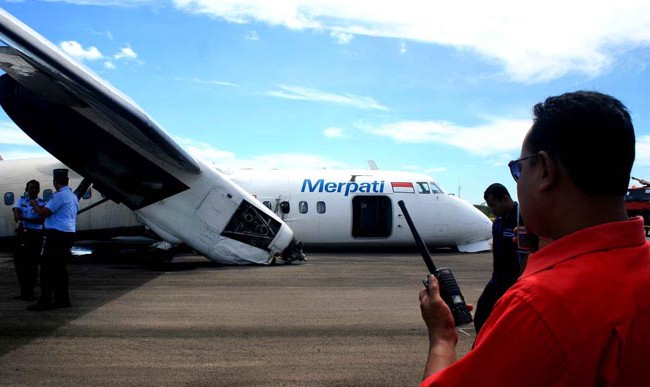
New Zealand accused of ‘bullying’
WHEN Tonga’s Deputy Prime Minister, Samiu Vaipulu appeared on New Zealand TV recently, his message to the New Zealand government was short and direct: ‘Stop trying to bully us… you are acting like silly children.’ He had earlier told Tongan media that the New Zealand government were behaving ‘like children’ in their latest dealings with Tonga. ‘What we don’t want is New Zealand telling us what to do and interfering with our internal matters,’ he said.
The person these remarks were directed to was New Zealand’s Minister of Foreign Affairs, Murray McCully, who is alleged to have ordered the withholding of a promised $10 million in aid to Tonga’s tourism industry. The reasons for the withholding of this aid money that Tonga needs badly had to do with the fact Tonga accepted an airplane gift from China, a 60-passenger plane that has not been registered in New Zealand, Australia, USA, or UK, and is alleged to be unsafe.
Mr. McCully is also said to be critical of Tonga’s alleged lack of support for Chatham’s Airlines, causing the domestic operator to leave Tonga ‘because it would no longer be profitable to have a second domestic airline to compete in a small market.’ Tonga’s newest domestic airline, Real Tonga Airlines, is a privately owned company, but is now flying the Chinese-made MA60 under an arrangement with the government. Mr. Vaipulu, who is also the Minister of Transportation, was at the forefront of this arrangement.
The criticism of the MA60 is based on the fact there were seven accidents between 2009 and 2013. Even though only one of those accidents was fatal (Merpati Airlines in Indonesia), the plane has come under scrutiny by some countries in the West who have declined to pass safety registration for various reasons. Communication from China in response to these accidents, claims pilot error in most, if not all. But since most tourists that come to Tonga are from New Zealand, there is a genuine concern for air travel safety within the country.
The mood in Nuku’alofa however is one of anger and disappointment at New Zealand. The decision to accept this airplane gift from China is Tonga’s to make, and New Zealand should not interfere with that. The same goes for the criticism concerning the departure of Chatham’s Airlines from Tonga. Mr. Vaipulu told Tonga media earlier in the year, that Chatham’s decision to leave Tonga was a business decision made by the company, based on their perception of Tonga’s domestic air travel market.
The point in Mr. Vaipulu’s televised remarks is not whether Tonga made the right decisions or not, but that New Zealand should not interfere in the affairs of a sovereign country, and use the situation of withholding aid to Tonga’s tourism industry as a ‘bullying tactic.’
But it’s not only Tonga that is reacting to New Zealand’s alleged bullying diplomacy. Fiji’s Foreign Minister, Ratu Inoke Kubuabola took exception to comments made by Mr. McCully recently, in which the New Zealand Foreign Minister criticized Mr. Kubuabola for praising Fiji’s success outside the Pacific Islands Forum. Fiji is currently suspended from the Forum. Fiji’s ‘Look North’ policy and development strategy has been successful in bringing aid from Asian countries, particularly China. And Fiji recently hosted the Pacific Islands Development Forum (PIDF), which was a success, in terms of the number of countries represented, and the objectives and goals set.
Mr. Kubuabola says that Australia and New Zealand do not ‘share the development aspirations of the Pacific, for even in the international community, they have a different agenda as a whole.’
Directing remarks to his New Zealand counterpart, Mr. Kubuabola said: ‘Now then McCully, how do you define the term relative, is it one who is your close neighbor and is selfish or is it one who has an altruistic outlook? I say it’s the latter.’ He continued: ‘Its not geography we share, but it’s the bond we share and the trust we have that matters the most. For Australia and New Zealand, I understand, it is just a coincidence of geography.’
Mr. Kubuabola went on to point out: ‘Why is it that in the international arena for instance in the United Nations, Australia and New Zealand are not with the Pacific grouping but under another umbrella group of countries when it comes to consultative discussions. Why is it that the Pacific Islanders are still required to obtain visas to enter Australia and New Zealand?’
Chair of the Tonga Advisory Council in New Zealand, Mr. Melino Maka, expressed concern at the language used by Mr. Vaipulu in his TV interview. Even though he understands Tonga’s frustration at ‘New Zealand interference’, he believes Tonga should talk things over with New Zealand, rather than inflame the situation by accusations of bullying.
‘If you rely on New Zealand and Australia to pay for civil servants’ wages, you should be careful how you handle situations like this,’ Mr. Maka said. He was referring to the fact that in the last four years, New Zealand has contributed to supplement Tonga’s government budget.
Mr. Maka also revealed that New Zealand has offered assistance to Tonga to certify the MA60, by finding an independent investigator to look at the safety allegations.
But there is one thing for sure, Tonga, Fiji, and other island states are more sensitive than ever to any outside pressure, particularly by their development partners, in regards to what the island states perceive as interference in internal matters.

